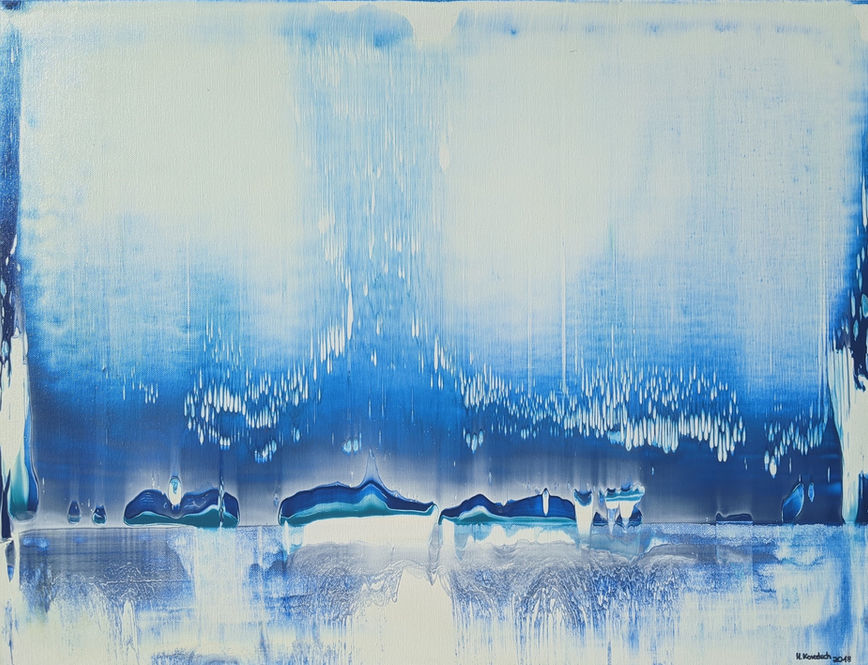Arctic
2018
Info
Title: Arctic
Year: 2018
Size: 80x60 cm
Technique: Rakel, Acrylic colour, canvas on wooden frame
The Arctic is The Epicenter of Global Warming.
This earth region around the north pole is not only very unique, it is the early warning system for global climate change on our planet. The increasing water temperatures are connected to sea level rise and a lesser radiant reflection of the sun, with stronger atmospheric warming (albedo effect), endangering numerous livelihoods and causing people to seek for refuge. The Arctic sea routes are increasingly navigable and make it possible to use previously inaccessible deposits of raw materials. Ice-free sea routes facilitate their transport. Thus, In addition to the negative effects of climate change, the security situation in the north has deteriorated. The conflicting ambitions of China, Russia and the US necessitate a dialogue on military security issues. With increasing global warming, an additional increased release of greenhouse gases from the storage in the permafrost soils is the consequence. Therefore, also methane is released in our atmosphere. Methane has a significantly higher global warming potential and we know this climate killer already in context with its release from the digestive systems of cows. Methane is about 25 times more harmful to the climate than CO2.
In Russia, almost two-thirds of the country is permanently frozen. If the permafrost thaws, there is a risk that they will collapse - a dangerous trend at the moment. The ground literally breaks under the feet of the people in Russia. Scientists were also able to show that methane emissions from the generation and use of fossil fuels were higher than previously assumed. Russia is one of the world's largest oil and gas exporters and big amounts of the climate-damaging gas escapes also during coal and oil production. Renewable Energy is the Key!
"In a few decades, we are destroying ice that has formed over thousands of years." (Marco Tedesco, Columbia University)

